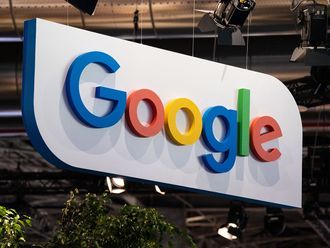
Women in advertising have warned that a macho culture remains rife in the industry, decades on from the testosterone-fuelled Mad Men era, after the chairman of Saatchi & Saatchi resigned in the wake of a sexism storm.
Kevin Roberts stepped down from the advertising group after triggering fury with his claims that the debate on gender bias is “all over” and that women lack “vertical ambition”.
His comments have unleashed a wave of anger from women in the industry, who have lined up to dispute his claims and give their accounts of sexism and other forms of discrimination.
Jan Gooding, head of brand at the insurer Aviva and chair of the LGBT campaign group Stonewall, said: “The agency business is in the dark ages on this. My generation believed we were the cohort who were going to create change. Now I’ve rediscovered my feminism and my anger because I look behind me and I see that it hasn’t changed. My view is that [Roberts’s] resignation several days later seems rather lame. I think he should have been fired.”
Kat Gordon, founder of The 3% Conference, a group championing female creative talent in the US, said: “What made my blood boil was for him to speak on behalf of a demographic to which he doesn’t belong. To declare something solved when it doesn’t impact him personally was really regrettable.”
The 3% Conference is so named because when it started in 2010, just 3 per cent of creative directors, a senior and prestigious position in the advertising industry, were women. The figure has risen since then but only to 11.5 per cent, even though nearly half of employees in the sector are women.
Gordon also lashed out at Roberts’s direct criticism of Cindy Gallop, former president of the global ad agency Bartle Bogle Hegarty (BBH).
Roberts claimed in the controversial interview with Business Insider that Gallop, who has campaigned vocally against gender bias in advertising, was “making up a lot of the stuff to create a profile”. Before his resignation, Roberts also held a “head coach” mentoring role at Saatchi & Saatchi.
“He made a statement on ambition that doesn’t represent what women are feeling and in the same breath he says that Cindy Gallop is doing this for her own ambition, which is ludicrous,” said Gordon.
Megan McGlynn, a freelance copywriter and founder of Girlsday, a Facebook group aimed at women in advertising, pointed to a posting from a female advertising professional who fell victim to gender bias in her company’s expenses policy for an evening work event.
“A couple of guys got hotel rooms because it was late-night drinking. The guys’ hotel rooms were covered by expenses. A woman had to get child care and that was not covered,” she said.
McGlynn also said some women did not report sexism, even if it was holding back their career, for fear that the fallout would do them even greater damage.
“Every woman in advertising has her own story of some kind of harassment or sexism or some sort of inappropriate behaviour in the workplace... it’s a career killer.”
Some global companies have made efforts to address gender bias and stereotyping in the campaigns they use to sell products to the public. The household goods firm Unilever said last month it would “unstereotype” its adverts, after research suggested just 2 per cent of ads showed intelligent women.
But the chief executives of the world’s top six advertising companies are men and senior women in the profession say the imbalance does not reflect, in the words of Roberts, a lack of vertical ambition.
Debbie Klein, the Europe and Asia chief executive for the marketing and advertising firm Engine Group, said: “It’s simply not true that women don’t want the top jobs.
“They may want to shape the top role in a slightly different way from the previous generation, and they bring a less command-and-control leadership style, which is in keeping with what millennials respond to. But there is burning ambition in every corner of this industry, from women as much as men.”
The Guardian spoke to women from across the advertising industry who came forward with tales of sexism — some on condition of anonymity.
Kate Waters, chief strategy officer at Now and member of the Women in Advertising and Communication London (WACL) group, said: “I’ve had comments about what I wear, that it might be appropriate to wear a shorter skirt to a meeting for instance.”
A 55-year-old account director, who used to work for Saatchi & Saatchi, said that while it was mostly a good company to work for, “it was taken for granted that female execs were there to look pretty and distract clients”.
She added: “On one occasion this included having to sing I Wanna Be Loved By You in a Marilyn Monroe voice to a client to sell him an ad campaign. I was handling tens of millions of business annually, but I still remember vile physical harassment, groping and abuse.”
Saatchi & Saatchi was founded in London by Maurice and Charles Saatchi and rose to fame with the ‘Labour isn’t working’ poster campaign for the Conservative party that was released in the run-up to Margaret Thatcher’s 1979 general election victory.
One 47-year-old retail strategy director at another business said: “There are double standards. Women aren’t confident; they’re hard or bitchy. Women aren’t leaders; they’re bossy. Women can’t show emotion because that’s being emotional, whereas emotional men are passionate. It takes a long time to learn to deal with that. And you can find yourself completely confused and disheartened along the way.”
A 29-year-old account manager said: “My experience has been abysmal. Sexism is rampant. Every male line manager I have ever had has commented on my wardrobe and looks frequently, always in an inappropriate way. One even slapped my [posterior] when he was drunk.”
Several senior advertising figures said the industry must seize the moment created by Roberts’s resignation to improve its record on diversity, not just on gender but on ethnic background, sexuality and disability access.
Tamara Ingram, former chief executive of Saatchi & Saatchi, became chief executive of New-York-based J Walter Thompson — owned by the British group WPP — after her predecessor Gustavo Martinez resigned in the wake of a lawsuit accusing him of racist and sexist comments.
She said: “When I look broadly, I believe there is an issue on diversity and an issue with women and keeping that present in the news is important because we need to make changes.
“A huge amount of effort needs to happen to change the way we recruit.”











